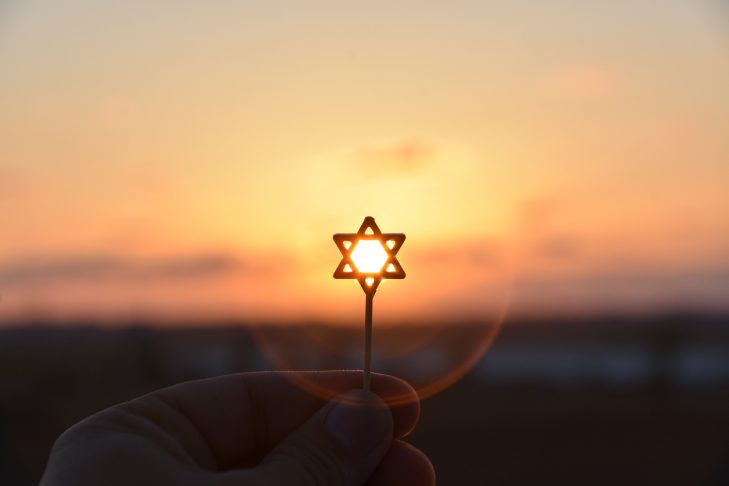The inevitable stress of our day-to-day lives — combined with constant news, world events and personal challenges — can often make it difficult to stay present. That is why the growing awareness of our need for daily mindfulness becomes more relevant with each and every day. Mindfulness is a powerful tool that helps us stay grounded in the moment and become more aware of ourselves and those around us. It’s so hard to slow down when quick fixes for stress, such as mindless scrolling, are so easy to access. But even practicing just one form of mindfulness a day can make a big impact.
Most of us have heard of the 5-4-3-2-1 method or tried meditating in yoga — but something I’ve found especially interesting is how many parallels there are between Jewish rituals and modern mindfulness practices. As we walk through these tools, think back to if you’ve ever done these without realizing — it’s very possible!
What is the first image that comes to mind when you hear the word “prayer”? Many picture someone in a synagogue, dressed nicely and holding a prayer book. However, prayer can actually be done formally or informally. Loosely defined, prayer is a way to connect with God, self-reflect, and express gratitude. Prayer can be done at any type of day. In the same way, meditation doesn’t have to be structured — it can be spontaneous and personal. Try this: Go outside (or stay where you are), sit down, and simply notice your surroundings. This can be done with eyes open or closed, but take in the senses around you. Listen to the birds, smell the food cooking, or tune into the voices around you. Just pausing to take in the moment can be deeply grounding and help slow everything down.
One recurring Jewish ritual that supports mindfulness happens every week — Havdalah. Havdalah marks the ending of Shabbat and the transition of beginning a new week. For me, it is a time to be more present and carry the calm and restfulness from Shabbat into the days ahead. Havdalah is one of the most vivid rituals in my memory because I was so present during it. That sense of presence comes not only from the timing, after a day of rest, but also from all the sensory elements — the scent of the spices, the warmth and glow of the candle — all which bring me into the moment, helping me reflect on the week that has passed and prepare for the one ahead.
Finally, gratitude plays a central part of practicing Judaism. Many people say a prayer of thanks upon waking up, expressing gratitude to God for returning their soul to their body after sleep. Incorporating and practicing gratitude into your daily routine can make you more aware of your life and help you become a more positive person overall. The benefits of gratitude are truly endless. Try naming three things you are grateful for each morning — or whenever you’re feeling low. It’s a small practice that can have a big impact.
This post has been contributed by a third party. The opinions, facts and any media content are presented solely by the author, and JewishBoston assumes no responsibility for them. Want to add your voice to the conversation? Publish your own post here. MORE



